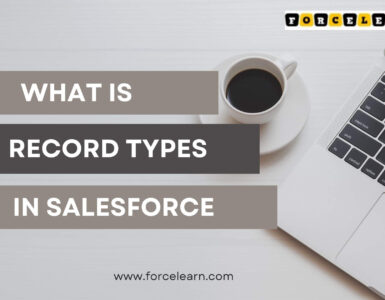Contents
What is Who ID in Salesforce
What is Who ID in Salesforce
In Salesforce, data management revolves around IDs. One important yet often overlooked identifier is the Who ID, which plays a key role in keeping track of people-related records. Understanding the Who ID can make a difference in how you manage activities, leads, and tasks. So, let’s dive into the world of Salesforce IDs and explore the significance of Who ID.
Understanding the Salesforce ID System
What are IDs in Salesforce?
Salesforce IDs are unique identifiers attached to every record. These IDs are what make it possible to manage large amounts of data without confusing one record for another. Whether it’s for contacts, accounts, or custom objects, Salesforce IDs ensure data integrity.
Role of IDs in Data Management
IDs serve as an essential link between different objects and records. They are the backbone of Salesforce’s data management, enabling automation, integration, and accurate reporting.
The Purpose of Who ID
Who ID: A Brief Definition
The Who ID in Salesforce specifically refers to the ID of a person, such as a Lead or Contact. It’s used to identify “who” the task, activity, or record is related to, ensuring proper tracking and assignment.
Where Is Who ID Used in Salesforce?
Common Use Cases for Who ID
The Who ID is most commonly used in tasks and activities, making it crucial for tracking interactions with individuals in Salesforce.
Activities and Tasks
When creating tasks or logging activities, Salesforce uses the Who ID to link the activity to a specific person, like a Contact or Lead.
Leads and Opportunities
In the context of leads and opportunities, Who IDs help in associating tasks or events with a person, streamlining the sales process.
Difference Between Who ID and What ID
The Who ID vs. What ID Debate
While Who ID represents a person, the What ID refers to objects like Accounts, Opportunities, or Cases. Understanding this difference is critical when working with Salesforce.
Who ID: Refers to People
The Who ID links to human elements such as Contacts or Leads. It’s primarily used in situations where you need to identify a person.
What ID: Refers to Objects or Things
Unlike the Who ID, the What ID connects to non-human records such as an Account or Case, emphasizing the object-based nature of the What ID.
How to Identify a Who ID in Salesforce
Decoding the ID Format
Salesforce IDs come in both 15 and 18-character formats. The length of the ID doesn’t affect the function, but there are nuances in decoding the format.
The 15 and 18 Character ID Format
The 15-character ID is case-sensitive, while the 18-character ID is case-insensitive, which is mainly used in external systems.
Recognizing a Who ID in Reports
When running reports in Salesforce, you can spot Who IDs by looking for references to Contacts or Leads. These IDs are crucial for ensuring your data points to the right individuals.
Benefits of Using Who ID in Salesforce
Improved Data Tracking
Who IDs provide a way to accurately track interactions with individuals, making data more reliable and actionable.
Enhanced Reporting and Analysis
With Who IDs, Salesforce users can build more detailed reports, focusing on people-centric data and making it easier to analyze engagement with leads and contacts.
Examples of Who ID in Action
How Who ID Works with Leads
Imagine you are managing a sales pipeline. The Who ID allows you to easily connect tasks to the appropriate lead, helping to streamline follow-up activities.
Managing Activities with Who ID
For any task or event involving communication with a contact, the Who ID links the person to the activity, ensuring accountability and clarity in data reporting.
Customizing and Extending Who ID Usage
Using Who ID in Custom Objects
Salesforce allows users to extend the functionality of Who IDs by incorporating them into custom objects, further enhancing data tracking.
Integration with Salesforce Automation
Who IDs can be tied into automation tools, allowing for seamless process flows where people-based records are involved.
Best Practices for Managing Who ID Data
Data Cleanup and Maintenance
Regular data cleaning ensures that Who IDs are correctly associated with the appropriate records, reducing errors.
Ensuring Consistency in Who ID Usage
Standardizing how Who IDs are used across your Salesforce instance is key to preventing data inconsistency.
Common Mistakes to Avoid with Who ID
Mixing Up Who ID and What ID
One of the most common errors is confusing a Who ID with a What ID. Remember, Who IDs are for people, and What IDs are for objects.
Incorrect Data Entry
Ensuring that the correct Who ID is associated with the right record is essential for maintaining accurate data.
How Who ID Impacts Reporting and Analytics
Analyzing Activity Data Based on Who ID
Who IDs enable precise reporting on person-related activities, giving deeper insights into customer engagement and sales efforts.
Advanced Who ID Usage in Salesforce
Leveraging API Calls with Who ID
Developers can use Who IDs in API calls to automate tasks and retrieve data related to specific individuals.
Building Custom Reports with Who ID
Creating custom reports using Who IDs allows users to get granular data on person-based interactions and activities.
Future of Who ID in Salesforce
How Salesforce Is Evolving Its ID Systems
Salesforce continues to innovate, and future updates to the platform may further enhance the way Who IDs are used, especially with the rise of AI and automation.
Conclusion
Understanding the importance of the Who ID in Salesforce can greatly improve your data tracking and reporting efforts. It’s a powerful tool for linking tasks and activities to individuals, giving you the insight needed to manage relationships and interactions efficiently.
We want to more about What is Who ID in Salesforce Click Here
FAQs
What is a Who ID in Salesforce?
A Who ID represents a person, such as a Contact or Lead, and is used in tasks and activities.
How does Who ID differ from What ID?
Who ID refers to people (Contacts/Leads), while What ID refers to objects (Accounts/Opportunities).
Where is Who ID most commonly used?
It is commonly used in activities like tasks and events to link them to a person.
Can you customize Who ID in Salesforce?
Yes, you can use Who ID with custom objects and automation processes.
What are the benefits of using Who ID?
It improves data accuracy, enhances reporting, and helps track individual interactions effectively.
In our next blog post we will discuss about What is What ID in Salesforce








Add comment